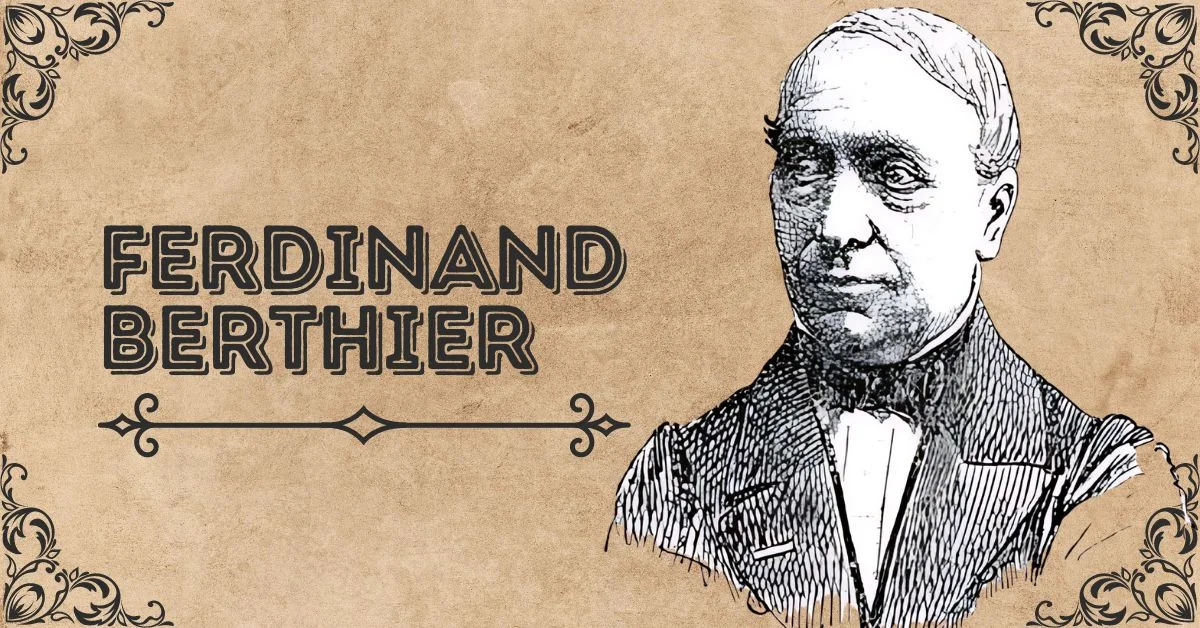Introduction
Ferdinand Berthier, a name that resonates profoundly within the deaf community, is often celebrated as one of the most influential figures in the history of deaf education and advocacy. His work during the 19th century laid the foundation for significant advancements in how society perceives and engages with deaf individuals. Berthier’s contributions extend beyond education; he was an ardent advocate for the rights and recognition of the deaf community, a teacher, an organizer, and a writer. This article delves into the life, achievements, and enduring legacy of Ferdinand Berthier, highlighting why he remains a revered figure in the annals of deaf history.
Early Life and Education
Ferdinand Berthier was born on September 30, 1803, in Louhans, France. From a young age, Berthier exhibited an inquisitive mind and a keen interest in learning. However, he became deaf as a child, a condition that would shape his future in ways he could not have imagined. At a time when deaf individuals were often marginalized and considered incapable of significant intellectual or social contributions, Berthier’s journey was particularly challenging.
Berthier’s educational journey began at the Institut National des Jeunes Sourds de Paris (National Institute for Deaf-Mutes in Paris), one of the first schools for the deaf in the world, founded by the legendary Abbé Charles-Michel de l’Épée. The institute played a crucial role in Berthier’s development, not just academically but also socially and culturally. It was here that he met notable figures in deaf education, including Abbé Sicard, de l’Épée’s successor, and Jean Massieu, a deaf teacher who became one of Berthier’s mentors.
Career and Contributions
Berthier’s career at the Institut National des Jeunes Sourds de Paris began as an assistant teacher. His dedication and passion for teaching quickly became evident, and he eventually became a professor. Berthier’s teaching methods were innovative and empathetic, emphasizing the potential and capabilities of deaf students rather than their limitations. He believed in the importance of sign language as a legitimate means of communication and instruction, a stance that was revolutionary at a time when oralism (the use of lip reading and speech) was being increasingly promoted.
In addition to his teaching, Berthier was a prolific writer. He authored several important works on deaf education and the rights of deaf individuals, including “Le Monde des Sourds-Muets” (The World of the Deaf-Mutes), which provided valuable insights into the lives and experiences of deaf people. His writings were instrumental in raising awareness about the capabilities and needs of the deaf community and advocating for their rights and recognition in society.
Advocacy and Leadership
Berthier’s influence extended beyond education into advocacy and leadership. He was instrumental in organizing the first-ever banquet for deaf individuals in Paris in 1834, an event that brought together deaf people from various walks of life to celebrate their identity and achievements. This banquet marked the beginning of an annual tradition that fostered a sense of community and solidarity among deaf individuals.
One of Berthier’s most significant contributions was his role in founding the Société Centrale des Sourds-Muets (Central Society of Deaf-Mutes) in 1838. This organization aimed to promote the interests and rights of the deaf community, providing a platform for advocacy and mutual support. Under Berthier’s leadership, the society became a powerful voice for deaf individuals, advocating for their education, employment, and social integration.
Berthier was also a strong advocate for the recognition of sign language. At a time when oralism was gaining prominence, he stood firmly in support of sign language as a vital aspect of deaf culture and communication. His efforts contributed to the preservation and promotion of sign language in educational and social settings, ensuring that it remained a central element of deaf identity.
Legacy and Impact
Ferdinand Berthier’s legacy is profound and far-reaching. His contributions to deaf education, advocacy, and the promotion of sign language have had a lasting impact on the deaf community worldwide. Berthier’s work helped to challenge and change societal perceptions of deaf individuals, demonstrating their capabilities and advocating for their rights and inclusion.
Berthier’s emphasis on the importance of sign language has had a lasting influence on deaf education. His advocacy for bilingual education, which includes both sign language and written/spoken language, is now widely recognized as an effective and inclusive approach. This bilingual approach respects and values the cultural and linguistic identity of deaf individuals, promoting their academic and social development.
The organizations and traditions that Berthier helped to establish, such as the Société Centrale des Sourds-Muets and the annual banquets for the deaf, continue to thrive and serve as vital sources of support and advocacy for the deaf community. These initiatives have provided a platform for deaf individuals to connect, share their experiences, and advocate for their rights and recognition.
In recognition of his contributions, Berthier received several honors during his lifetime, including the prestigious Légion d’Honneur from the French government. This recognition was a testament to his tireless efforts and the significant impact of his work on society.
Conclusion
Ferdinand Berthier’s life and work are a testament to the power of dedication, advocacy, and the pursuit of justice. His contributions to deaf education and advocacy have left an indelible mark on the deaf community and society as a whole. Berthier’s unwavering belief in the potential and rights of deaf individuals continues to inspire and guide efforts toward inclusion and equality.
As we reflect on Berthier’s legacy, it is important to recognize the ongoing challenges and opportunities in the field of deaf education and advocacy. Berthier’s work reminds us of the importance of promoting and respecting the linguistic and cultural identity of deaf individuals, advocating for their rights, and ensuring their full inclusion in all aspects of society. His life and achievements serve as a beacon of hope and inspiration for future generations, encouraging us to continue the journey toward a more inclusive and equitable world for all.










+ There are no comments
Add yours